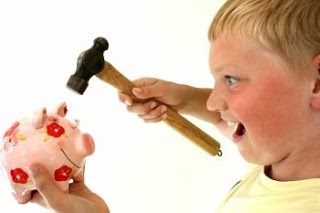By Nathan Collier
The ability to delay gratification for (sufficient) future reward is the essence of self-discipline indeed of civilization. The first ancient who decided to plant a crop instead of remaining a subsistence hand to mouth hunter did so because they believed the future reward was worth the wait. The food surplus provided by agriculture allowed others to become scientists and scholars and laid the foundation for progress.
But what if the future reward were uncertain? Our ancient farmer would not invest months of work planting and cultivating if marauders were likely to steal the harvest or the local lord was to take too great a share as tax.
To what extent is what we call self-discipline or self-control impacted by our world beliefs about the likelihood of hard work or sacrifice ‘paying off’? If we have role models or experiences that demonstrate to us that self-discipline is rewarded (our parents or older siblings went to college, got good grades & good jobs), then we find it easier to delay gratification. If our experience of life is different, if our significant portion of contemporaries end up as casualties of the ‘war on drugs’, serving long sentences for relatively minor offenses, well, we might find it easy to believe that the system is rigged against us, that the likelihood of being self-discipline being rewarded is low.
The belief that future reward is highly problematic in turn makes going for immediate gratification appear to be a much more rational choice. The more we can increase the sense of certainty that hard work and self-control have real payoffs, the better off we will be, both as individuals and as a society.
Closing Quotes
“Educate your children to self-control, to the habit of holding passion and prejudice & evil tendencies subject to an upright and reasoning will & you have done much to abolish misery from their future & crimes from society.” – Benjamin Franklin, 1706-1790, Founding Father
“The ability to subordinate an impulse to a value is the essence of the proactive person.” – Stephen R. Covey, 1932-2012, 7 Habits of Highly Effective People
“You can control yourself if you really want to. I’ll tell you how I know you can control yourself. If you were in a full fledged emotional temper tantrum in your house and I knocked on your front door….. Come on! Let me tell you what, you would get control of yourself, and it would only take a few seconds.”– Joyce Meyer, b. 1943



0 Comments